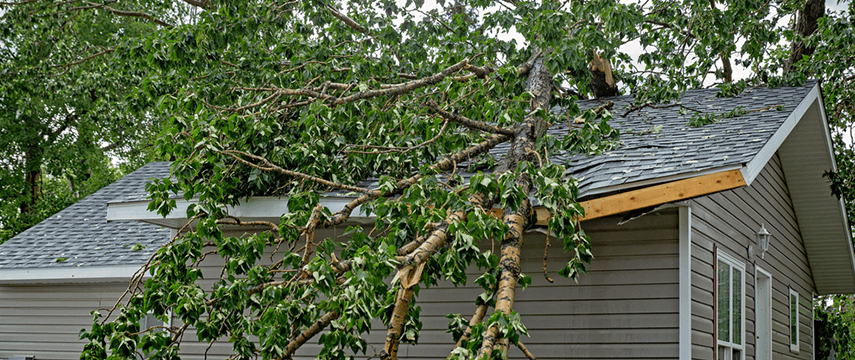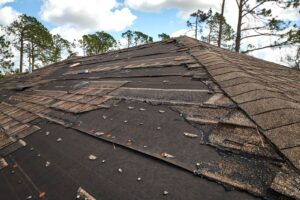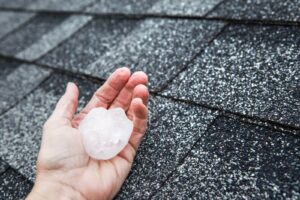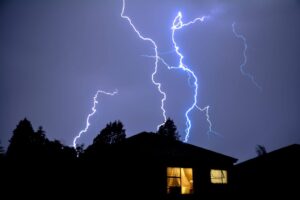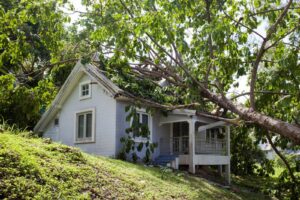When a destructive storm comes through your area and causes damage to your home, all you want is to fix it and get back to a sense of normalcy. The first step in that journey is to file a storm damage insurance claim. While this can feel like a daunting process, having a partner like KSW Construction can help make it smoother.
We’ll go over how to file a storm damage claim and what types of storm damages are usually covered under your homeowner’s insurance.
How to File an Insurance Claim for Storm Damage
Filing a storm damage insurance claim can be overwhelming. However, the process doesn’t need to be complicated. At KSW Construction, we work alongside you and your insurance company, and we are here to help answer your questions. Here are some steps you can take if you’re just getting started.
1. See What Damage Is Covered Under Your Policy
As mentioned above, your homeowner’s insurance does not cover all damage. It’s best to first check your policy and see what you can expect to be covered. Sometimes policies can be confusing to read. If you have any questions, or if something isn’t clear, KSW Construction is able to assist you in answering preliminary questions at our initial meeting with you. You may also find it beneficial to reach out to your insurance company with policy-related questions.
2. Safely Document Visible Damage
Once you talk to your insurance company, take photos of the damage if you are able. The clearer the images, the better informed your insurance company is to start their assessment.
Your selected contractor and insurance company will usually perform their own documentation, but you may find it beneficial to secure your own documentation for your records. Keep safety in mind, and refrain from climbing on the roof, putting yourself in danger, or moving heavy objects to take photos of damages.
3. Contact Your Insurance Company To Report Damage
There are several ways to contact your insurance company to make a claim. Check if your provider has an app where you can file your claim. You can also file a claim over the phone or sometimes in person, depending on who is covering you.
It’s worth noting that some policies may require you to contact them promptly, so don’t put this step off. While you may select a contractor prior to opening your insurance claim, the claims process may take time, so it’s best to tackle this step as soon as you can.
4. Look for a Licensed Contractor for Repairs or Restoration
When beginning the search for a licensed contractor to restore your home to a pre-damage condition, check reviews and look for someone who’s experienced with storm damage repairs. You’ll want a contractor who’s used to dealing with insurance companies and understands the process.
Some insurance companies will have a preferred contractor list you can choose from. Make sure you understand your insurance company’s requirements regarding contractor selections. Your hired contractor should be someone who is licensed, insured, and has your best interests in mind. When it comes to working with your insurance company, KSW Construction will always vouch for you and your home to ensure that all restoration requirements are met.
Once your contractor completes their initial inspection of your property and records all damages, they should discuss the damages with you. In addition to a free, detailed inspection and damage assessment, KSW Construction can also provide assistance with preliminary services, such as tarping to prevent further leaks.
5. Keep Documentation of All Work
Have your contractor document all their work, and then run the receipts through your insurance company. This makes sure that everyone is on the same page regarding repairs and that no fraud is happening. You may ask your insurance company and contractor for copies of their inspection reports to keep on file as well.
What Types Of Storm Damage Are Most Commonly Covered In PA?
Storm damage isn’t just storm damage. Each type of storm brings different challenges and repairs for homeowners. Here are the most common types of storm damages that most insurance companies will cover in Pennsylvania.
Wind Damage
Wind damage from storms is one of the most destructive forces of nature. It can cause minor damage, like missing shingles, or it can level buildings, destroy roofs or foundations, and cause damage from flying debris.
Wind damage isn’t necessarily from tornados, which are rare but still a possibility. (Pennsylvania does see on average 16 tornadoes each year.) Wind is typically the result of tropical storms, rain storms, or pressure changes.
Hail Damage
Hail can damage roofs, siding, and windows, depending on its size. Hail can range from ¼ inch to over 4 ½ inches. In Pennsylvania, hail doesn’t happen as often as lightning or high winds, but when severe storms happen, it’s a possibility.
It can also exacerbate any existing damage and make repairs even more expensive, such as hail breaking an already cracked window during a storm. So instead of having to just repair a crack, you might need to get a new pane of glass or even a whole new window depending on where the damage is.
While it’s not always easy to predict the chance of hail, you can always do due diligence afterward. We recommend you always inspect your home at the end of each hailstorm to make sure you catch and remedy any damage promptly.
Lightning Damage
Lightning strikes can cause fires, electrical surges, and damage to electronic equipment. Unfortunately, there is no way to fully protect your home against lightning. However, you can take some proactive steps to help minimize the damage, like using surge protectors for your electronics or installing a lightning rod.
Surges can also cause power outages, which if they last long enough can lead to mold damage if you live in a humid climate. For example, with the power out your air conditioning or fans stop running, driving up the humidity in a room and creating the right climate for mold to grow. It’s essential to clean it up as soon as possible before it spreads and you need mold remediation, which can be expensive.
Impact Damage
Impact damage is the byproduct of storms. This includes fallen trees and debris getting blown against structures due to high winds.
It can range from minor cosmetic damages such as broken windows, to more severe wreckage such as structural damage to buildings, and even the destruction of homes and businesses. As a result of this debris, power lines may be downed and flooding may occur, causing more devastation.
If you’re facing severe impact damage, make sure you put safety first. Avoid any downed power lines that may still be live and make sure everyone is clear of any affected structures that are compromised until they’re deemed safe again by professionals.
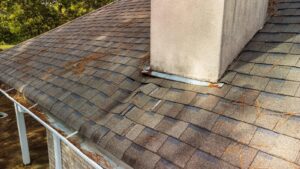
Water Damage
Water damage can be confusing for insurance policies. Some policies will cover water damage depending on what caused it.
Usually, water damage from floods won’t be covered, since those are a separate policy. In Pennsylvania, you can purchase an additional flood insurance policy through the National Flood Insurance Program.
But water damage caused by rain storms or wind damage might be covered. If you have any questions about your policy, it’s best to speak about this with your agent and go over the specifics.
Helping You Regain Your Footing After Storm Damage
After a storm you just want life to get back to normal. That’s where KSW Construction’s damage repair and restoration support can help.
First, we come in and do a free inspection of your property. Then we provide you with a detailed assessment of the damages, review them with you, and provide you support throughout the insurance claim process, especially on how to file for storm damage.
Once your insurance claims for storm damage are filed, we’ll meet with your adjuster to go over the damages and present them with an estimate. We’ll then review the estimate and your available options with you so you’re part of the process.
On occasion, if your insurance company misses essential items necessary to meet code compliance and manufacturer’s guidelines, we will request a supplement. After that, if everything is approved by all parties, our team will start work.
If you have questions about repairs for your home at any point in the process, our team is knowledgeable and ready to provide you with answers, samples, or ideas. Our professional crews are licensed and insured and will treat your home as if it were their own. We don’t believe in rushing through jobs—we take our time and make sure our work is up to all PA safety standards.
Unexpected storm damage and insurance claims are stressful enough–the repair process doesn’t need to be. Whether it’s a new roof, replacing vinyl siding, or anything else in between, our team can handle any storm damage.

